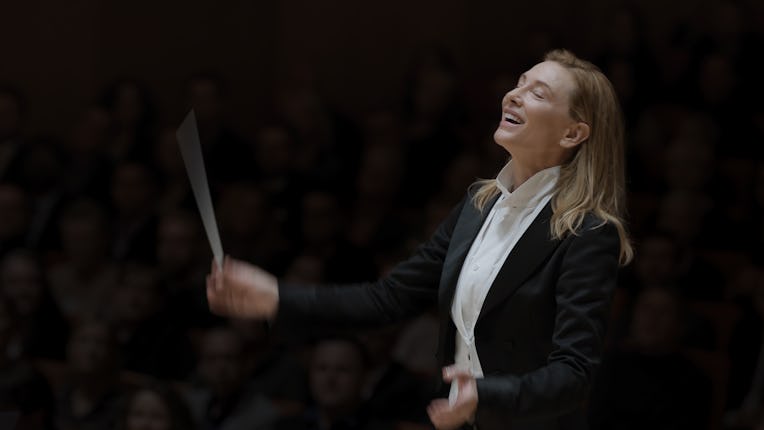It's Finally Out: TÁR (MUSIC FROM AND INSPIRED BY THE MOTION PICTURE)
Here’s an album that’s actually gay

Midnights this, The Loneliest Time that: I’m only listening to one new album by a unproblematic queen today and that’s TÁR (MUSIC FROM AND INSPIRED BY THE MOTION PICTURE) (which is Todd Field’s TÁR, by the way).
During the Q&A after the New York Film Festival screening of TÁR, Cate Blanchett shared that she, composer Hildur Guðnadóttir, cellist Sophie Kauer, a handful of other artists and soloists, and the London Contemporary Orchestra recorded a studio session including rehearsals conducted by Blanchett, who plays composer/conductor Lydia Tár in the aforementioned TÁR. Learning there would be an album with all of the hit tunes from TÁR (as if there aren’t enough Mahler 5 recordings on Spotify) was a point of personal excitement. I told everyone I knew that Deutsche Grammophon would be releasing the album, and they said, “Actually we know this. It was a story in early September,” to which I was like, “Okay, well, this means a lot more once you’ve seen the film.”
How is the album? Well, it’s definitely TÁR (MUSIC FROM AND INSPIRED BY THE MOTION PICTURE) all right, by which I mean a lot of original recordings of Hildur Guðnadóttir’s music for the film that is not actually played in the film (movie magic) and some Mahler and Elgar. The Icelandic composer, who won an Oscar in 2020 for her score for Joker, wrote the original music that Tár herself is writing in the film. The Tár suite, as I’m calling it, consisting of three movements, is an aggressive and haunting series of pieces, centering on the lower strings. Because Tár spends more time in the film ruining her own life through her own actions and not doing her job of composing music, we don’t get a good sense of what she’s supposed to be writing. It’s cool, in turn, to have this album lend to the canon of the film, as well as being a welcome addition to Guðnadóttir’s already impressive and evocative library of pieces.
What’s especially great also is Sophie Kauer’s recordings of Elgar’s Cello Concerto in E Minor, one of, if not the, most famous pieces of classical music for cello. Kauer’s performance in the film as young, hot cellist Olga completely discombobulates Tár, leading her down a path of self-destructive flirtation. In the studio sessions album, you can really get a sense of how seductive that cello concerto is, how measured and deliberate Kauer’s breathing is while she plays. You, too, would throw your whole life away to be with the person sitting behind that instrument.
Of course, there are some “bops” too, like Tár’s impressions of various concert pianists playing Bach’s Well-Tempered Clavier in a scene where she humiliates a Juilliard student. It’s great to have the option to hear Cate Blanchett say “Glenn Gould” on Spotify. Dialogue tracks on albums have never really been anything other than “cringe,” but as Tár’s contemporary Taylor Swift would say, “learn to live beside cringe,” or whatever it was she told NYU students. There are field recordings. There are Mahler rehearsals. There’s more of Blanchett speaking German (!) in an American accent (!!). In many ways, this is like Lydia Tár’s Midnights, which is to say, a compilation of things probably intended for something else but thrown together all here for the profound enjoyment of a select audience, of which I am a proud member.